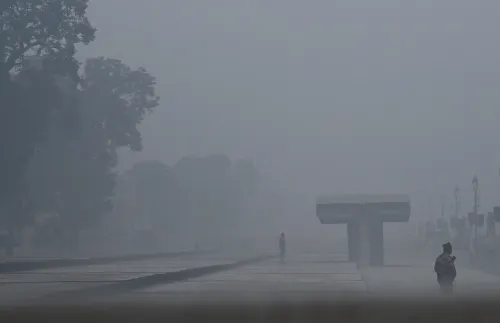Are Global Cholera Outbreaks Worsening? WHO Issues Urgent Call

Synopsis
Key Takeaways
- Global cholera cases have surged, with 409,000 cases reported this year.
- Conflict and poverty are significant drivers of the outbreaks.
- Access to safe drinking water and sanitation is crucial for prevention.
- Immediate treatment is vital to prevent fatalities.
- Cross-border cooperation is necessary to combat the spread.
Geneva, Aug 30 (NationPress) The World Health Organization (WHO) has highlighted a troubling escalation in cholera outbreaks, exacerbated by conflict and poverty, across numerous nations, presenting a considerable global public health crisis.
The latest report on Disease Outbreaks noted that from January 1 to August 17, 2025, there were 409,000 cholera cases and 4,738 fatalities documented across 31 countries, with six nations showing a case fatality rate above 1 percent.
Data indicates that the Eastern Mediterranean Region has recorded the highest incidence of cases, while the African Region has seen the most deaths.
The report cautions that factors such as conflict, mass displacement, natural disasters, and climate change are accelerating cholera's spread, particularly in rural areas and regions affected by flooding, where infrastructure is weak and healthcare access is limited. These cross-border issues have rendered outbreaks increasingly intricate and challenging to manage.
The WHO emphasizes that ensuring access to safe drinking water, proper sanitation, and hygiene practices is the only viable long-term solution to resolve the ongoing cholera crisis and avert future outbreaks. Given the magnitude, intensity, and interrelated nature of these outbreaks, the potential for further spread within and between nations is deemed extremely high, as reported by the Xinhua news agency.
In order to mitigate transmission, the WHO advocates for enhanced surveillance, improved case management, expanded Water, Sanitation, and Hygiene (WASH) initiatives, vaccination campaigns, and better cross-border cooperation to implement public health strategies.
Cholera is an acute diarrheal illness caused by ingesting food or water contaminated with the Vibrio cholerae bacterium. It represents a global public health risk and signifies disparities in social and economic development. Access to safe water, basic sanitation, and hygiene is crucial to preventing cholera and other waterborne diseases.
Most individuals infected with cholera experience mild to moderate diarrhea, which can be treated with an oral rehydration solution (ORS). However, the disease can escalate rapidly, making prompt treatment essential for saving lives. Patients with severe conditions require intravenous fluids, ORS, and antibiotics.
Countries must establish robust epidemiological and laboratory surveillance systems to quickly detect and monitor outbreaks and direct their responses.
Cholera outbreaks are commonplace in certain nations, while in others, they occur less frequently, sometimes with years between incidents. Cholera correlates with inadequate access to safe water, basic sanitation, and poor hygiene practices, often due to conflict, population displacement, climatic disturbances like cyclones, floods, or droughts, and insufficient investment in maintaining and enhancing WASH services and infrastructure.
Reported cases of cholera have been on the rise in recent years, with the WHO documenting a total of 535,321 cases and 4,007 deaths from 45 countries in 2023. The gap between these statistics and estimates made by researchers may stem from limited surveillance systems and unreported cases due to fears of negative impacts on trade and tourism.










